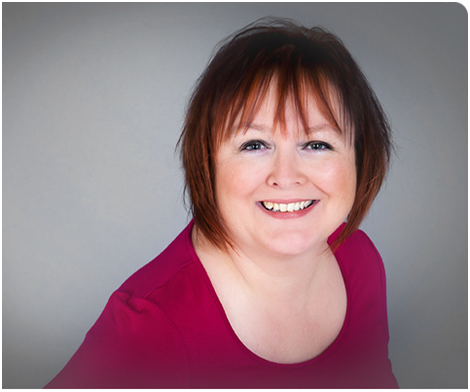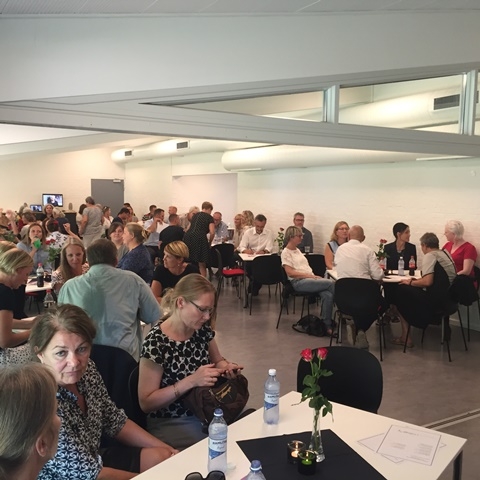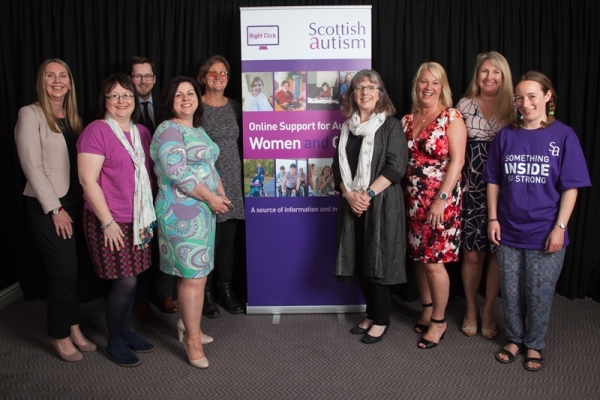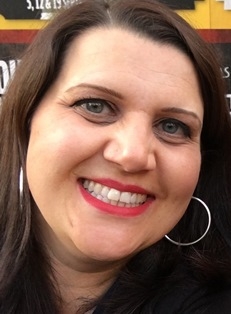Autistic Mothers... really?
Lana Grant, Advisor and Advocate
This morning I read another headline on social media about the frustrating lack of diagnosis of autistic girls. These headlines have been around since 2010. Every year, we are encouraged to believe things are improving with regard to recognising and addressing autism in females. They are - but not quickly enough.
I was an autistic girl. I was not diagnosed until I was an autistic woman aged 38. By that time I was also an autistic mother. My diagnosis followed that of one of my (male) children. Since then I have worked hard to raise awareness of the presentation of autism in females. Through the course of this work I have encountered many mothers who present as being autistic, are self-identifying as autistic or are actually diagnosed.
Many of these women are living with a (mis?)diagnosis of anxiety, depression, bi-polar disorder and other mental health conditions. Many of these women are also in relationships, working and raising families. Most of the women I speak with are doing this feeling isolated and different. This is wrong.
As autistic mothers we need a peer group. I have recently set up a group on Facebook called ‘Mums on The Spectrum’. I expected to have a group with about 10 members. We have recently welcomed our 42nd member. The reason for establishing this group was to offer a safe forum for autistic mothers to discuss their lows and also their highs. Many have autistic children but the group is not a place to discuss them, there are many other groups for that. This is a safe group where we can talk about things in a safe space with peers who understand. We can discuss balancing our needs with those of our families, we can discuss our frustration about employment issues and interactions with professionals. We can also talk about our hopes, worries and fears and we don’t judge.
Motherhood is tough. Autistic motherhood is really tough. It is also massively rewarding. Someone recently asked me if I felt guilty that I had passed my autistic genes onto my children (I have three children on the spectrum). On that day my answer was no. However, ask me on another day and my answer may well be different. That doesn’t mean I shouldn’t be a mother because I’m autistic and I was quick to point this out to the person who asked me the question (an autistic woman who was considering motherhood). It means that sometimes I may need some extra support and understanding. This can only come with early diagnosis of our girls and empowering them with the knowledge that they can do anything they want to, in some respects, because of their autism, not despite it. Autism may bring with it focus, attention to detail, problem-solving abilities, logic and often a great deal of determination.
Motherhood throws you into situations that can be difficult and unavoidable. From the ante-natal groups to the school gates, we are placed in situations that we may find uncomfortable. Before my diagnosis I raced through motherhood with anxiety levels that eventually propelled me to a breakdown. Through this time I visited the GP many times to ask for help. I was sent away with patronising smiles and told that it was just part of motherhood.
Yes, motherhood is stressful, life is stressful, but it shouldn’t send you to the depths of depression that I was experiencing. So I began a relay between medics who implied that I was struggling because I was defective. Sensitive and anxious were used as belittling, pejorative terms, meant for people unable to quite cope with life because there was something wrong with them. Only when I received my diagnosis did I realise what had been the key issue and problem all along. Lack of awareness of my autism, certainly but more importantly perhaps, lack of appropriate support.
It is hard balancing our needs as mothers with our families’ needs but because of the perfectionism – and our natural feelings of love and responsibility we feel for our children - we are prone to, we push ourselves, often feeling we are not good enough because of our self-imposed standards. Would this be different had I known about my diagnosis earlier? Yes, I think it probably would.
Many of the women I speak with have had involvement from professionals within the area of health and social care. For many undiagnosed autistic women their mothering may not fall into the usual patterns and presentations expected by professionals. Some women may be able to carry out the basic caregiving for their children, such as feeding and cleaning but they may not demonstrate overt physical affection or social interaction and play with their young. Others may be overly attentive to their children to the point of obsessiveness. Many are physically affectionate, however, and many may have a mix of qualities and presentations relating to their autism.
I have worked with mothers where there have been mutterings from professionals about Fabricated Illness Syndrome (FID) and in some cases children have been removed from the home following serious allegations and poorly informed or prejudiced professional judgments. These mothers face a long battle, with little understanding or support, to get their children back. They may be accused of being hysterical and inappropriate during court proceedings, because their autism is neither recognised nor understood or accommodated. Sensory issues, high arousal and emotional liability are seen as pathological, rather than a natural response by an autistic person to high levels of stress and often combative situations. When they ask for diagnosis they may be dismissed as ‘attention seeking’ because “women are not autistic”.
As a professional myself I am committed to the safeguarding of children and young people and this should always be the top priority. However, what I urge in my work is that professionals recognise autistic mothers, our assets, our challenges, our needs. We exist. We have individual presentations as do all autistics, male and female, but we do exist. Autistic girls grow up and may become mothers. We owe it to all the girls to recognise they exist and ensure that they are supported. For all of its messiness – and life is messy in many ways, for everyone – life and motherhood can hold positive, wonderful experiences. Autistic women can and do make wonderful mothers – quirky, eccentric, perhaps, but loving and capable. We need to stop ignoring autistic mothers and help them to become empowered to do what they want, just like other mothers, to be the best mothers for their children they can be.
Having worked within the field of autism for nearly 20 years, Lana Grant is a specialist advisor and advocate for people with autism and their families.
Resources and Links
Mums on the Spectrum Facebook page
SWAN: Scottish Women’s Autism Network runs a Facebook page. SWAN’s core group includes a number of mothers and many of the 1000+ ‘likers’ of the page are also mothers.





